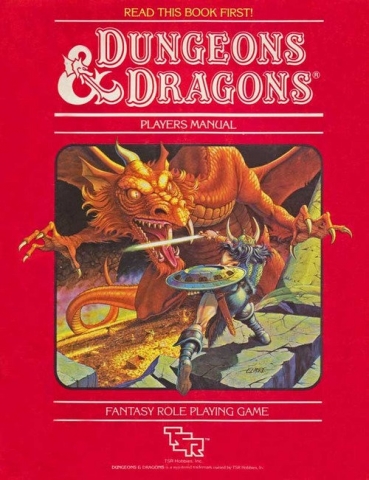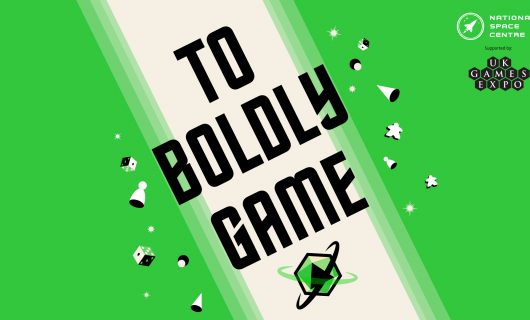
Start Here!
When I started the company several years ago I did so for personal reasons, as well as ‘hoping’ as a business it could be a success. I had an inkling it could work, from personal experience, but had big doubts as to whether or not I could find anyone to listen to me or that felt the same way as I did.
At school I was quiet. I was well behaved, polite but very quiet. I never got in trouble. I struggled in lessons and was ignored by both the teachers and most of the pupils alike. The only teacher with whom I had any affinity was my English teacher, the one teacher who sparked my imagination and let me be a little more creative.

During the first couple of years at secondary school a cousin of mine introduced me to a couple of games that he himself had started to play. The first was a skirmish game set in the second, world war, with miniature tanks and lots of numbers. It was fun but quite technical. The other was called Dungeons & Dragons, a game of pure imagination and social interaction. This is the one that really switched on a light in my head. This made me look at everything differently. I have very fond memories of this game, and lots of them, and still play to this day.
They (games)… ignited my desire to learn both in and out of school.
Around the same time, the Fighting Fantasy game books appeared, where the reader was able to choose their own path through the book, and these, combined with the above two games, changed and turned my life around.
Each of them gave me somewhere to channel my previously unrealised creativity. Whether writing and running adventures for Dungeons & Dragons or well as drawing maps out for the game books, showing all of the various routes that were possible within, they meant that my free time suddenly became a busy time of new thoughts and new possibilities. They ignited my desire to learn both in and out of school. They gave me a kind of independent thought and determination. To create something that was of my own, to want to find meaning of new words or to solve riddles that I could challenge others with later.

This new hunger stayed with me and continues to this day. Whether we’re hosting a games club or setting up Imagination Gaming, I’ve seen the effect that games can have on both individuals or as a family. They bring focus to those that struggle or reveal inner confidence in those that feel they have little. By running our activities we are looking to open the eyes of others who’ve yet to experience these new games and interactions and to show them a world with a little less electronics and a little more human interplay.
Getting Educators and Parents ‘On Board’
Let’s be honest. Whether it’s a school or a library, a youth club or a prison, these institutions have lots on their plates at the moment and probably not enough funding or time to do it. It seems that no matter who you contact they are all, often understandably, busy. From our perspective, it’s vital when working with any of these bodies that the staff there get fully involved, and that’s no mean feat.
Educating the staff as to what they can achieve through the games is just as important as showing the children how to play them. Showing the staff how to manipulate the rules and game play to fit their needs brings an added value to them and unlocks the real potential of them as a resource. If used right, games both in a class or during breaks can make the jobs of staff a little easier and help show a different side of all of the players, both staff and pupils alike. This in turn helps create a different perspective and generates mutual respect, especially in secondary schools and with older children.
When approaching organisations our first hurdle is to persuade the adults of the benefits of these sorts of activities. You would be surprised just how many teachers and parents tell us ‘We’re not in to games’ and then refuse to join in.
When we are so insistent of children to try things out, it’s remarkable how stubborn we become as adults.
We seem to have, in general, developed a cultural aversion to playing board games nowadays. Whether people are worried about looking daft, not understanding the rules or concerned about losing, none of which are important, there are a great number of people that will say or do some very strange things but put a game down in front of them and they will become paralyzed with fear?!
Many see the benefits immediately, while others simply don’t. What do you say to someone whose first response to this is to say that “kids aren’t interested in these games anymore” or that “they just want to play on their Xbox”. Our first reply is usually along the lines of “How often do they play these sorts of games then?” or “Don’t they play on their Xbox every day of their lives?”
I often wonder what else kids do nowadays that doesn’t involve something electronic and for some I really don’t think there is a great deal. Whether it’s at home or at school we spend more and more time in front of a screen. During lessons many of the activities are performed on iPads and at home many hours are spent on DS, phones and other devices.

One of the great appeals of traditional games is that they are now a novelty. How often do kids get to play a game with wooden pieces and colourful artwork that they get to move and manipulate themselves? Not often! In my childhood it was home pc’s that were the new fad but as these are as commonplace, more traditional games are starting to come to the fore and stimulate real excitement.
We have never had, in over seven years, a single child who after trying the games didn’t enjoy them and then ask to try something else. It’s about finding the right game for that player but with a good range that’s only a small problem to overcome. The look on the faces on the teachers or parents when their children become completely involved in the game is worth running the session for alone. Then it becomes about persuading the adult to join in…
…
So, at this point you know a bit more about me, about why I like games and why I thought, and now know, that certain games have a crucial place in education. And why ‘education’ is beginning to agree.
On friday you will be able to read the rest of this article that will touch on a few of the many different human skills games can showcase and develop and some of the games that do just that.
Next week we will start to talk about the games industry from several perspectives through a series of blogs and posts designed to inform and pose questions about what’s happenoing with the games we love and use. We will be touching on the different areas of design, manufacture and publishing of games and of course how we consume these products… so please get in touch and let us know what you think too.



